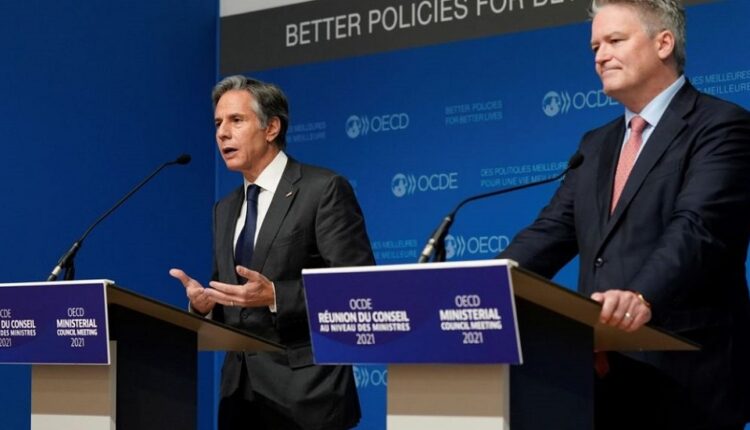OECD countries sign a minimum 15 % tax agreement for multinational companies
The historic agreement reached by 136 countries will come into effect from 2023 and establishes that companies pay taxes equitably no matter where they carry out their activities
An agreement between 136 countries establishes a global minimum tax of 15 % for multinational companies from 2023. This is a historic alliance that has been led, for 10 years, by the Organization for Economic Cooperation and Development (OECD).
This measure arises from the concern that multinational companies redirect their profits to places where taxes are lower, in order to reduce the tax burden to pay. The agreement represents more than 90 % of world GDP.
Additionally, it will allocate “more than 125,000 million dollars of profits from the 100 largest and most profitable multinational companies to countries around the world.” Ensuring that the transnationals pay “the equitable part of taxes that correspond to them, regardless of where they carry out their activities and generate profits.”
Of the 140 members of the OECD / G20 Inclusive Framework on Tax Planning Strategies (BEPS) 136 joined the declaration that establishes two pillars to address the tax challenges arising from the Digitization of the Economy. While Kenya, Nigeria, Pakistan and Sri Lanka have yet to adhere to the agreement.
Tax reallocation
The agreement on the global minimum tax does not attempt to eliminate tax competition, but imposes restrictions negotiated multilaterally, which will cause an additional collection, for the countries, equivalent to “about 150,000 million US dollars.”
The first pillar of the agreement establishes a fairer distribution between countries of the profits and tax rights related to the largest and most profitable multinational companies, reallocating tax rights on large companies from the countries of origin to the markets in which who carry out their economic activity and obtain benefits, regardless of having a physical presence or not.
This means that all those companies that register global sales above 20 billion euros and their profitability exceeds 10 %, which can be considered the most favored by globalization, will be subject to the new rules, so they will be reassigned to market jurisdictions 25 % of the profit that exceeds the 10 % threshold.
While the second pillar establishes a “minimum global tax on companies of 15 %, which will apply to companies that exceed “750 million euros” calculating an annual, worldwide collection, in the order of USD 150 billion.
In addition, the benefits of this agreement will also impact taxpayers and their administrations because it will provide greater stability to the international financial system, as well as the enhancement of legal security in tax matters.
M. Rodríguez
Source: Finanzasdigital.com


